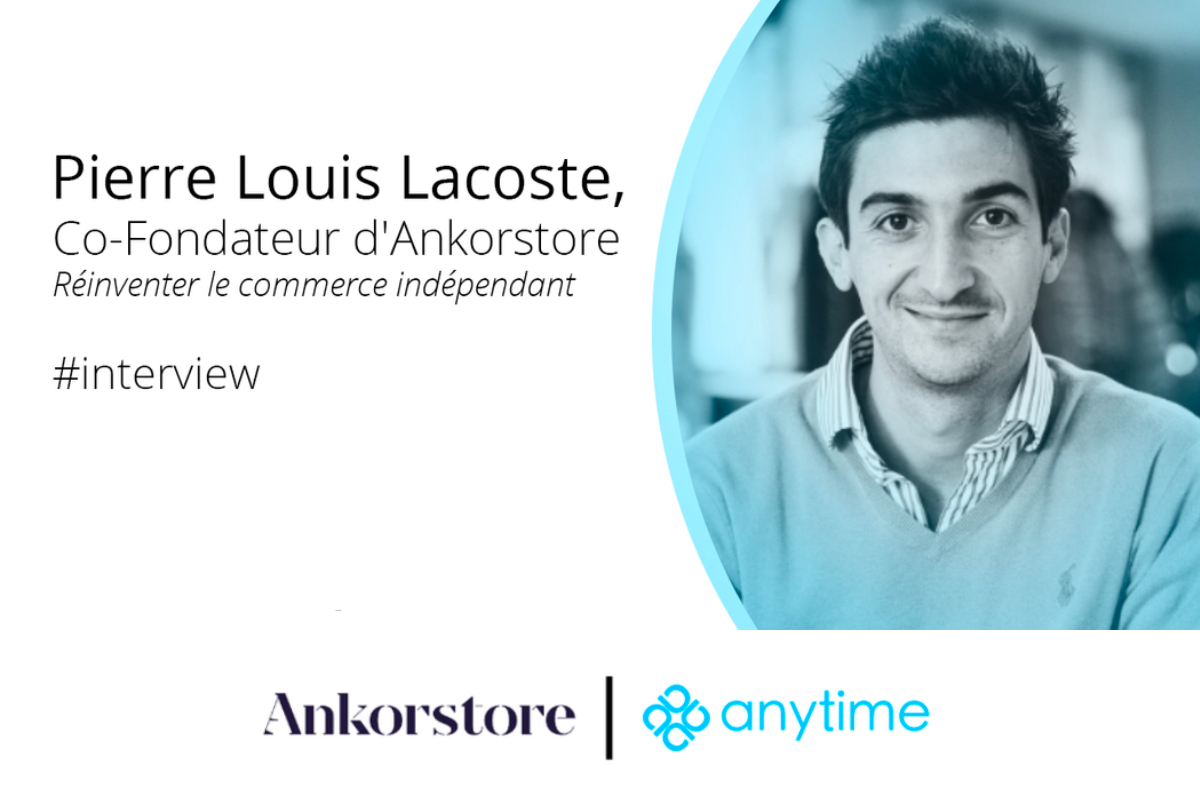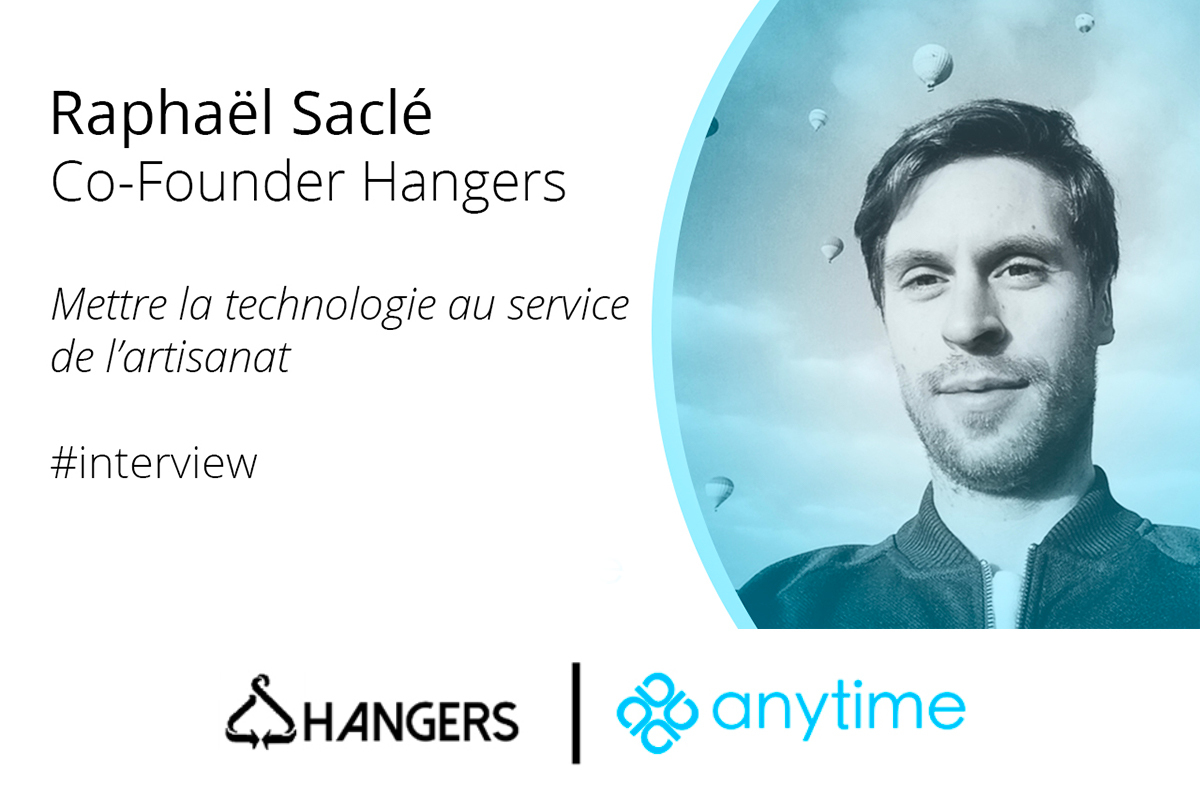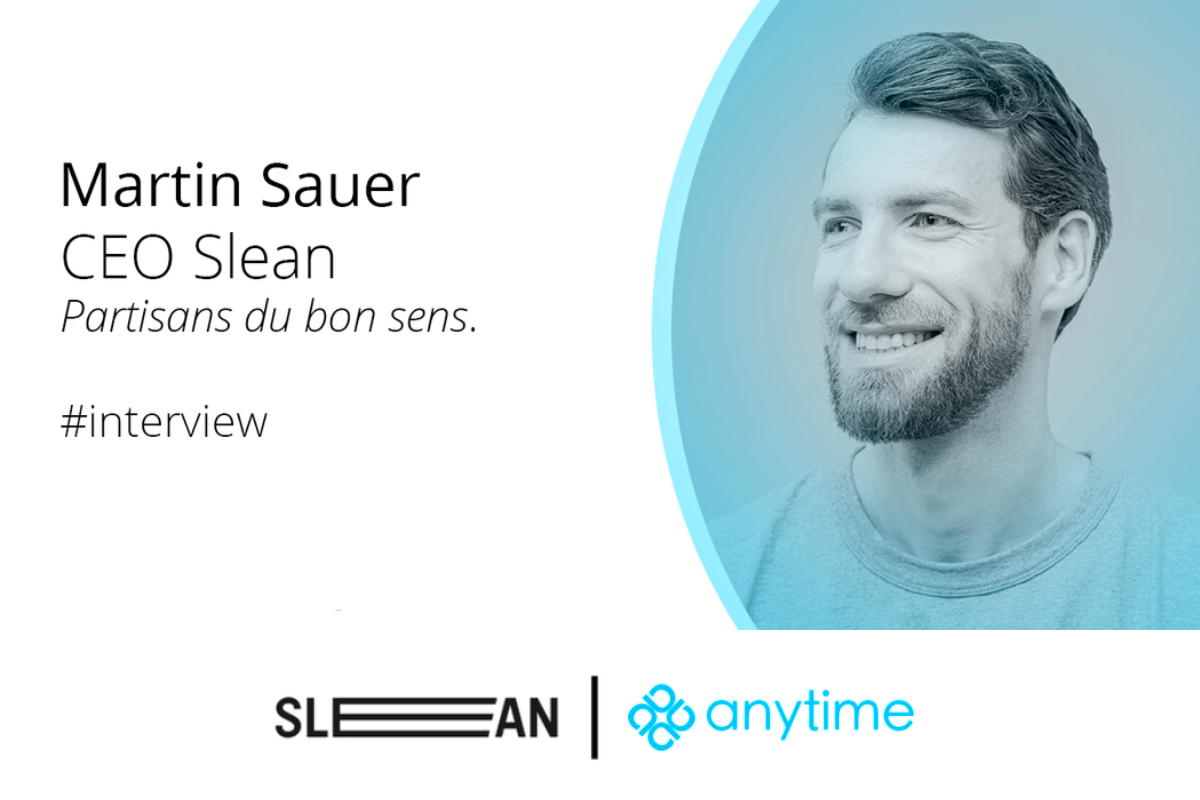
As part of European Sustainable Development Week, we wanted to highlight an entrepreneurial project in line with these principles. What could be better than a desk and chair made in France, with a zero-waste approach and a short supply chain? Meet Martin Sauer, founder of Slean.
"Initially, we had an office furniture project. About a year ago, I teamed up with Nathanaël and Damien, who are designers. Our ambition was to breathe new life into the office furniture market, with an environmental and design approach as well as a business model. Ten days after the confinement, we realized that the mood wasn't one of office furniture, and that's when we decided to pivot towards telecommuting and even work in the broader sense."
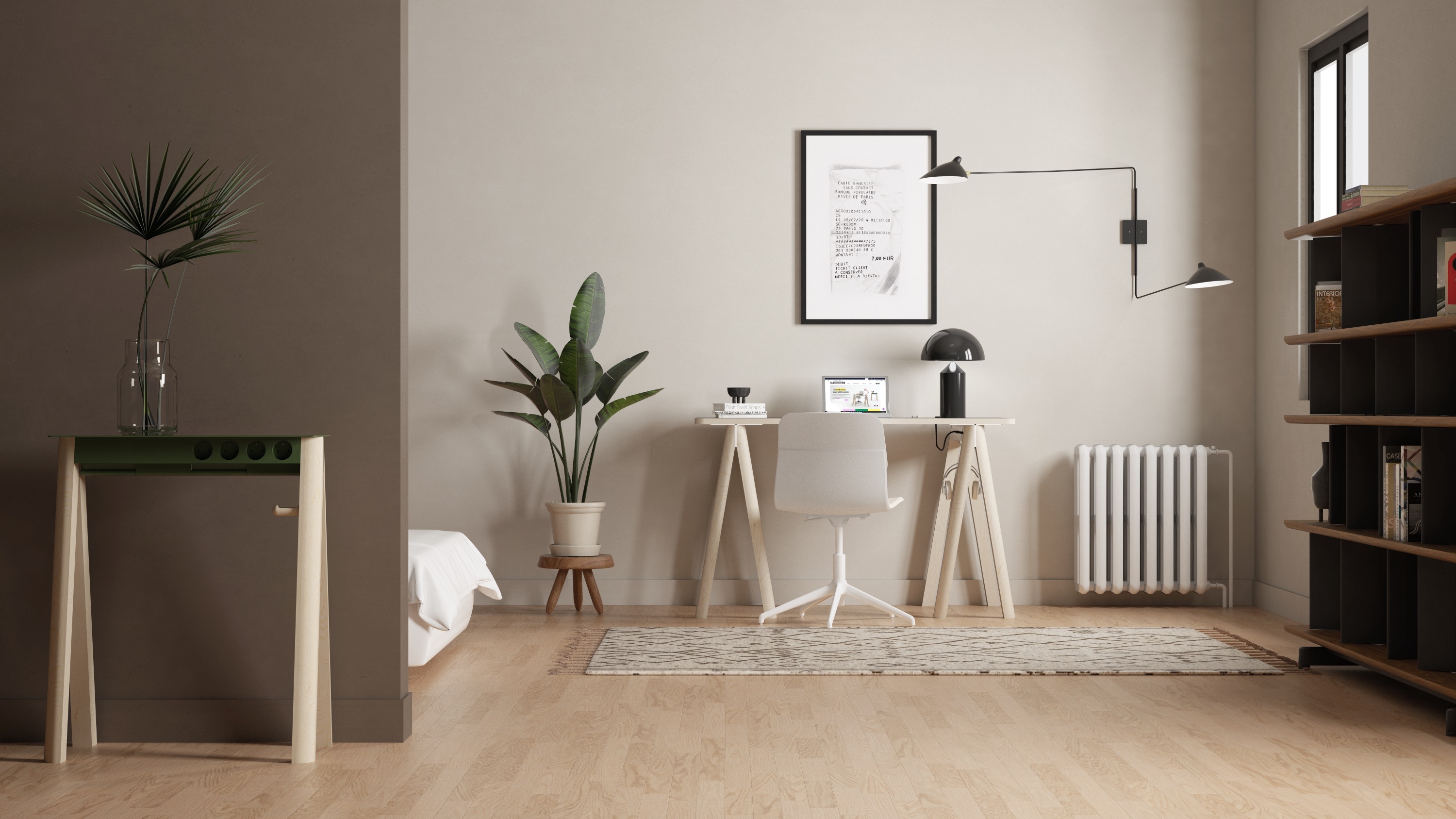
Martin Sauer's challenge was to turn a challenge into an opportunity. As a partner in the Desormeaux & Carrettes studio, and with a background at Manutan (France's leading catalog retailer of industrial equipment), he was bound to have an opinion on the evolution of office furniture. So it was through the Slean project that he launched this entrepreneurial adventure. Starting out with the idea of a spacious office, it was current events that forced a change of course, forcing this new team to rethink the workplace.
"It was during containment that we realized that people didn't have the space or inclination to install a home office. So we thought about this logic of being able to install a workspace of the right size, which could be dismantled and transformed, in a few moments, into two small consoles."
A desk and a chair, available for purchase or rental at €40 a month, Slean was born with a precise goal in mind: to enable companies to equip their employees with an ergonomic workspace in the home, without impacting on their personal comfort. Not content with having found the answer to a highly topical problem, the trio added an additional constraint: to create a product that took environmental issues into account. It was during this reflection that they realized they could combine zero waste and made in France.
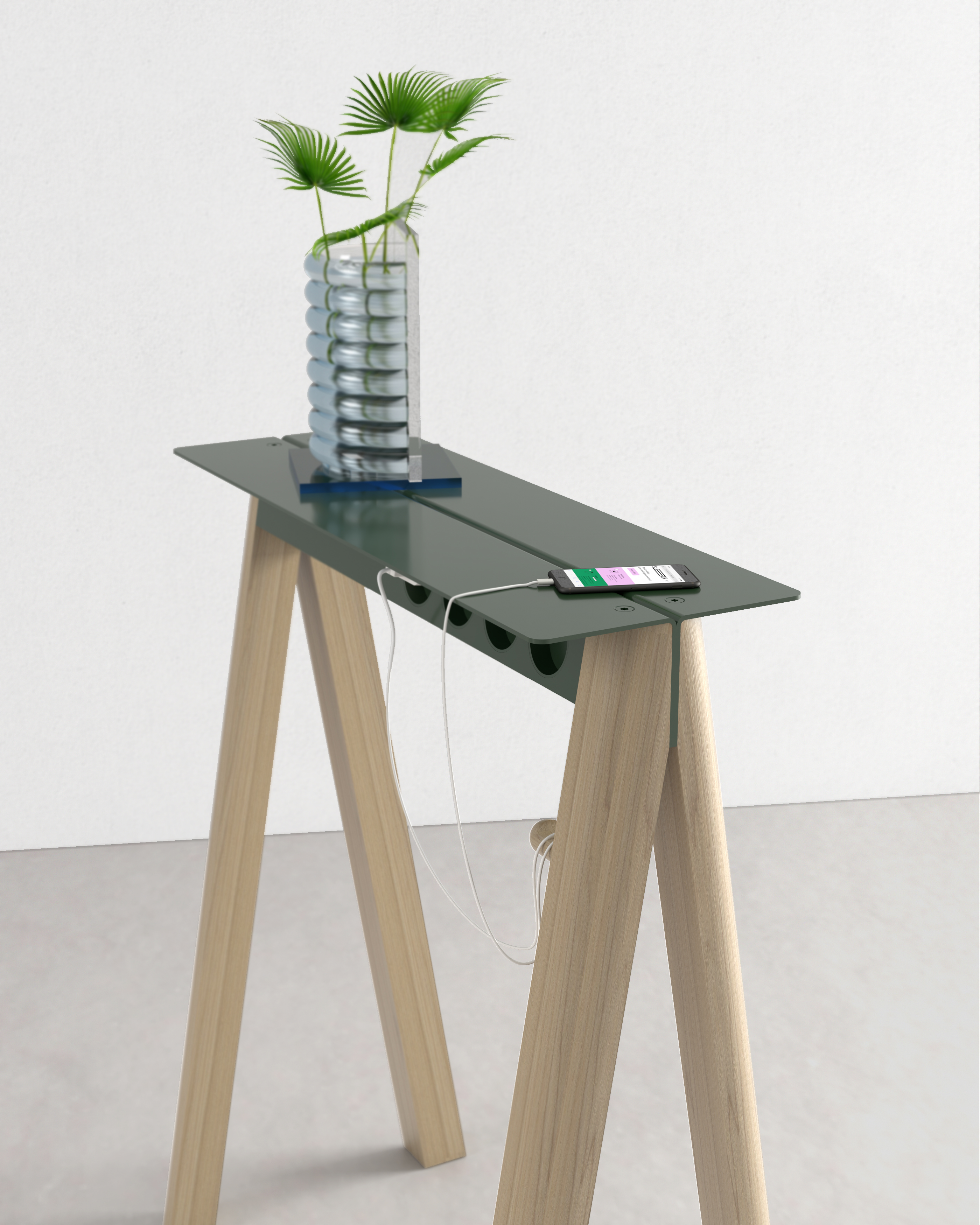
"It was when we discovered the ecosystem that it became obvious to manufacture in France. We have both self-regulating forests and manufacturers who are the perfect mix of craftsmanship and know-how, coupled with modernization and automation to stay competitive."
Slean decided to use the KissKissBankBank crowdfunding platform to get maximum customer feedback and visibility. The gamble paid off! Slean now has 137 pre-orders out of the 50 initially planned. By mid-September, 274% of the target had been reached.
They also benefited from a real showcase with an exhibition at the BHV Marais, as well as at the Maison du Crowdfunding, allowing a selection of customers to try out the quality of the product first-hand.
"Today, we're talking to companies of all sizes, and we're seeing interest from all kinds of players: from small start-ups who've had to give up their offices because they can no longer afford them, to CAC40 groups who contact us directly because they already have a policy of sustainable teleworking. They know that they are obliged to implement solutions to address this issue."
An issue that challenges the whole vision of work. According to Martin Sauer, we're only at the beginning of these changes, and finding the right balance is always a challenge for every company.
"It's going to take months for each company, depending on its culture, resources, ambitions and growth, to find the right balance. This will require a great deal of flexibility and modularity. That's why we offer our models on a rental basis, to avoid buying products that may no longer meet a company's needs after just a few months."
We wanted to know how one industry insider predicts the changes to come, and whether we'll continue to move towards the Silicon Valley model.
"In 2 years' time, office spaces won't have evolved enormously yet, although we should see increased investment in the living space, this to encourage social bonding and collaboration. In 5 years' time, we should see an evolution towards much more modular spaces, which really allow people to work in the office in a more flexible and collaborative way. This evolution will be more adapted to a need than to a fixed layout that forces humans to adapt."
According to Martin Sauer, these changes should not stop with this exceptional crisis, as he sees the third-place becoming a cornerstone of tomorrow's workplace.
The notion of "third-location" is going to take on much greater importance. Today, to innovate, you need to be connected to your market, your ecosystem, your customers and partners. Companies are going to invest more and more in shared spaces to stimulate exchange and create links. Eventually, the concept of decentralization should enable us to reclaim our living and working spaces, necessarily with technologies that enable us to work collaboratively without the need for physical presence."
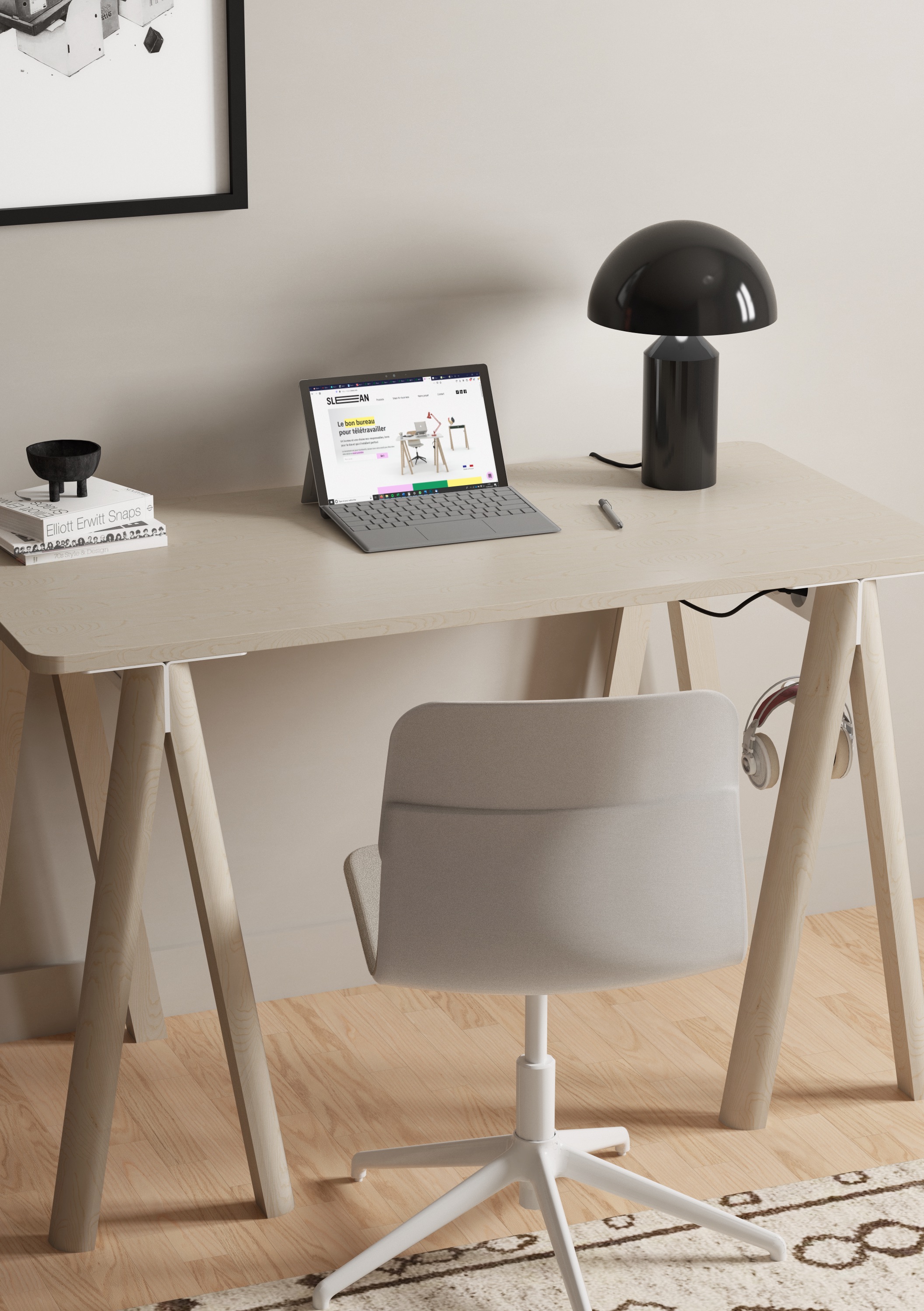
If you too are concerned by teleworking, don't hesitate to tell us how your company has adapted. To find out more about Slean and its products, click here.



